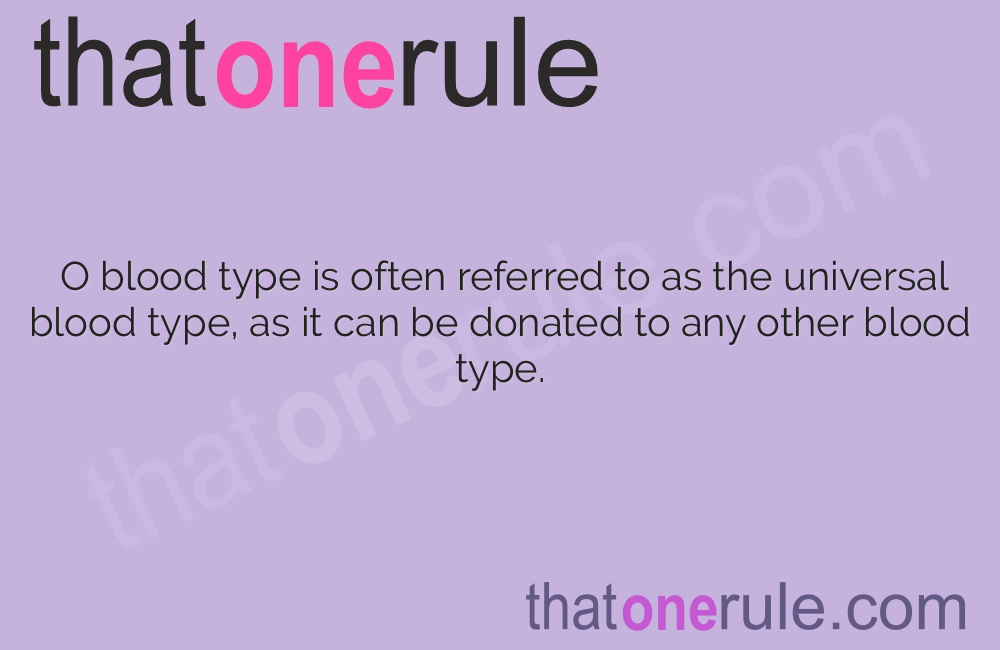O Blood Type Facts – What You Need to Know

O blood type is often referred to as the universal blood type, as it can be donated to any other blood type.
People with O blood type are considered to be natural-born leaders.
O blood type individuals tend to have a strong and resilient immune system.
O blood type individuals are known for their adventurous and bold nature.
People with O blood type have a higher risk of stomach ulcers.
O blood type individuals are often referred to as warriors due to their strong physical endurance.
O blood type individuals have a lower risk of heart disease compared to other blood types.
People with O blood type are often described as sociable and outgoing.
O negative blood type is the rarest blood type, only occurring in approximately 7% of the population.
O positive blood type is the most common blood type, occurring in approximately 37% of the population.
O blood type individuals have a higher risk of developing thyroid disorders.
People with O blood type are more prone to food sensitivities and allergies.
O blood type individuals are known for their creative and artistic abilities.
People with O blood type tend to have a higher metabolism, making it easier for them to lose weight.
O blood type individuals are more likely to experience blood clotting disorders.
O blood type individuals have a higher risk of developing certain types of cancers.
People with O blood type are often described as go-getters due to their determined and ambitious nature.
O Blood Type Facts – What You Need to Know part 2
O blood type individuals have a higher risk of developing macular degeneration.
O blood type individuals are often more resistant to stress and have better emotional stability.
People with O blood type are more likely to experience side effects from certain medications.
O blood type individuals tend to have a higher energy level and are always on the move.
O blood type is believed to have originated from early humans who were hunter-gatherers.
People with O blood type have a higher risk of developing Type 2 diabetes.
O blood type individuals are more likely to have a lower level of vitamin B
People with O blood type are often described as independent and self-confident.
O blood type individuals have a higher risk of developing peptic ulcers.
People with O blood type are more likely to develop allergies to certain foods.
O blood type individuals are known for their ability to think quickly and make decisions under pressure.
O blood type individuals have a higher risk of developing multiple sclerosis.
People with O blood type are more prone to experiencing blood sugar fluctuations.
O blood type individuals are often drawn to professions that involve physical activity and athleticism.
People with O blood type have a higher risk of developing gallstones.
O blood type individuals are often described as charismatic and charming.
People with O blood type have a higher risk of developing skin cancer.
O blood type individuals are often referred to as free spirits due to their desire for independence.
People with O blood type are more likely to have a lower level of blood-clotting proteins.
O blood type individuals have a higher risk of developing kidney stones.
People with O blood type are often described as natural problem solvers.
O blood type individuals have a higher risk of developing gastric cancer.
People with O blood type are more likely to experience difficulty in digesting certain foods.
O blood type individuals are known for their competitive nature and desire to win.
People with O blood type have a higher risk of developing blood disorders such as anemia.
O blood type individuals are often described as outgoing and social butterflies.
People with O blood type are more likely to experience muscle and joint pain.
O blood type individuals have a higher risk of developing autoimmune diseases.